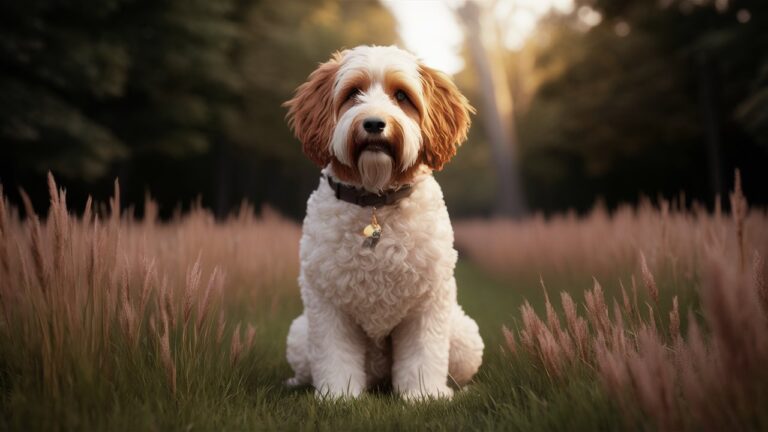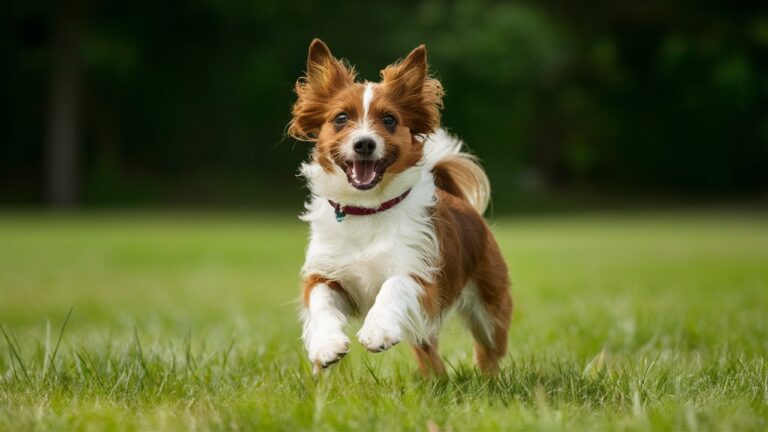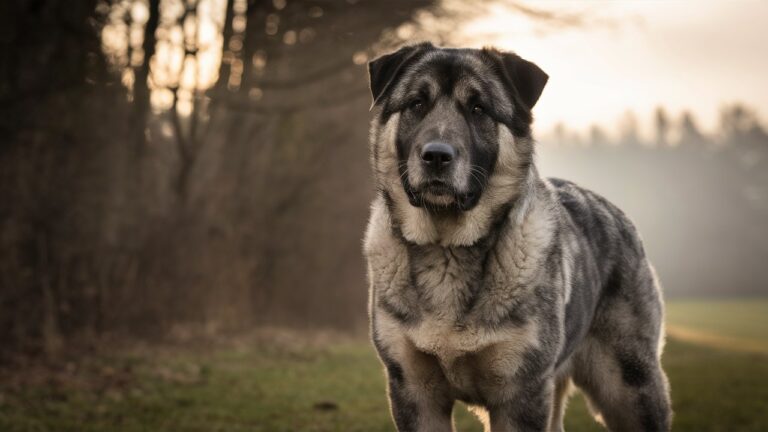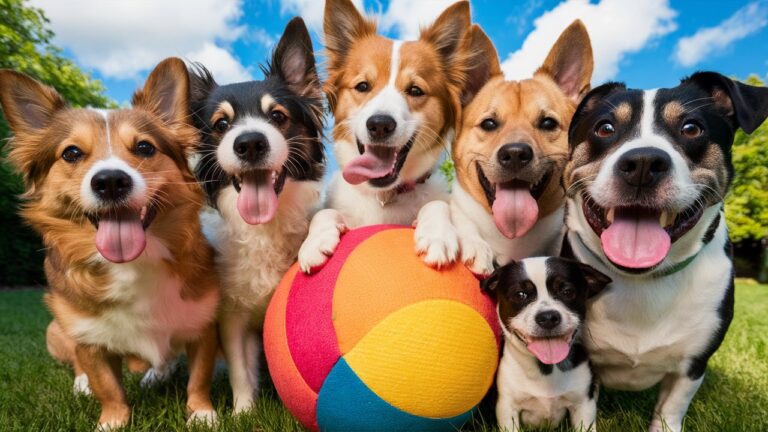The Canaan Dog:100% Rich Complete Guide
The Canaan Dog is a breed steeped in history and tradition, known for its intelligence, loyalty, and unique appearance. Originating from the Middle East, these dogs have adapted to various environments over centuries, making them versatile and resilient. This article delves into the history, characteristics, training, health, and personal anecdotes to give a comprehensive understanding of this fascinating breed.
1. History and Origins
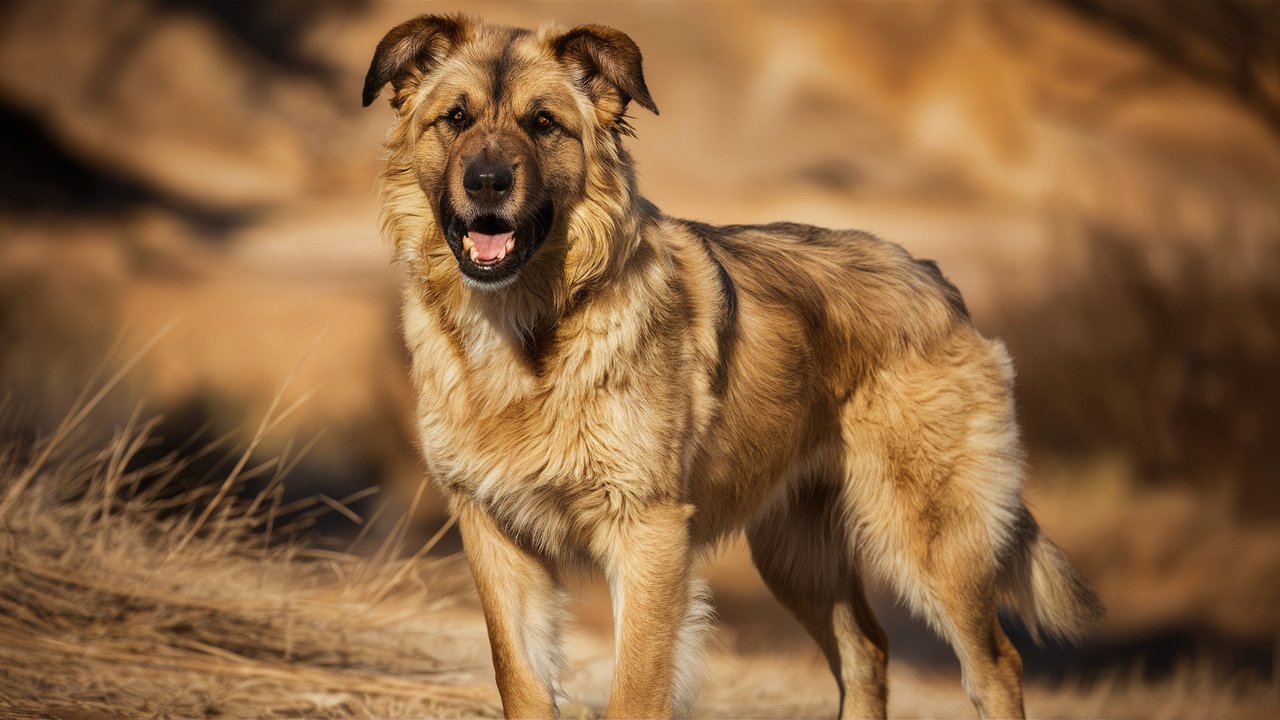
The Canaan Dog, also known as the Bedouin Sheepdog, has its roots in ancient Israel. These dogs were initially used by the nomadic Bedouin people to guard their camps and livestock. Their keen senses and alertness made them invaluable in the harsh desert environment. Archaeological evidence suggests that similar dogs existed in the region as far back as 4,000 years ago.
During the early 20th century, Dr. Rudolphina Menzel, an Austrian cynologist, played a crucial role in the formal recognition and breeding of the Canaan Dog. She was tasked with creating a service dog for the newly formed state of Israel. Dr. Menzel noticed the wild dogs living around Bedouin camps and decided to domesticate and train them. Her efforts were successful, and these dogs proved to be excellent guard dogs, messengers, and even landmine detectors during World War II.
2. Physical Characteristics
Canaan Dogs are medium-sized, with a strong, square build that exudes both agility and strength. Males typically stand 20 to 24 inches tall and weigh between 45 to 55 pounds, while females are slightly smaller, standing 19 to 23 inches and weighing 35 to 45 pounds.
- Coat and Color: They have a dense, double coat that provides excellent protection against the elements. The outer coat is harsh and straight, while the undercoat is soft and thick. Coat colors can vary widely, including sand, red, white, black, or a combination of these.
- Head and Expression: The Canaan Dog’s head is well-proportioned, with a broad, flat skull and a moderate stop. Their eyes are almond-shaped and dark, exuding a keen, intelligent expression. Erect ears are another distinctive feature, giving the breed an alert appearance.
- Tail: The tail is bushy and carried in a curl over the back when the dog is excited or alert, a trait common in many primitive breeds.
3. Temperament and Behavior
The Canaan Dog is known for its loyalty, intelligence, and independence. These traits, while endearing, can also pose challenges for inexperienced dog owners.
- Loyalty and Affection: Canaan Dogs form strong bonds with their families and are known to be protective. They can be reserved with strangers, making them excellent watchdogs.
- Intelligence and Trainability: Their intelligence is a double-edged sword. While they can learn commands quickly, they also require consistent and firm training. Positive reinforcement techniques work best with this breed.
- Independence: As a breed that has lived in the wild for centuries, Canaan Dogs retain a strong independent streak. They are capable of making decisions on their own, which can sometimes come across as stubbornness.
Personal Anecdote: I recall a story from a friend who owns a Canaan Dog named Ziva. Ziva was incredibly protective of her family, always positioning herself between her owners and any perceived threat. This behavior, while initially daunting, became a source of comfort and security for the family, highlighting the breed’s inherent loyalty and protective nature.
4. Training and Socialization
Training a Canaan Dog requires patience, consistency, and an understanding of the breed’s unique traits. Early socialization is crucial to ensure they grow into well-rounded adults.
- Early Socialization: Exposing Canaan Dogs to various environments, people, and other animals at a young age helps mitigate their natural wariness of strangers. Puppy classes and regular walks in busy areas can be beneficial.
- Positive Reinforcement: Using treats, praise, and play as rewards is effective. Harsh training methods can lead to fearfulness or aggression.
- Mental Stimulation: Canaan Dogs thrive on mental challenges. Puzzle toys, advanced obedience training, and activities like agility or tracking can keep them engaged and prevent boredom.
Personal Anecdote: Training my Canaan Dog, Luna, was a journey of its own. She quickly mastered basic commands, but her independent nature meant she often tested boundaries. I found that incorporating games and puzzles into her training sessions kept her engaged and made learning fun for both of us.
5. Health and Lifespan
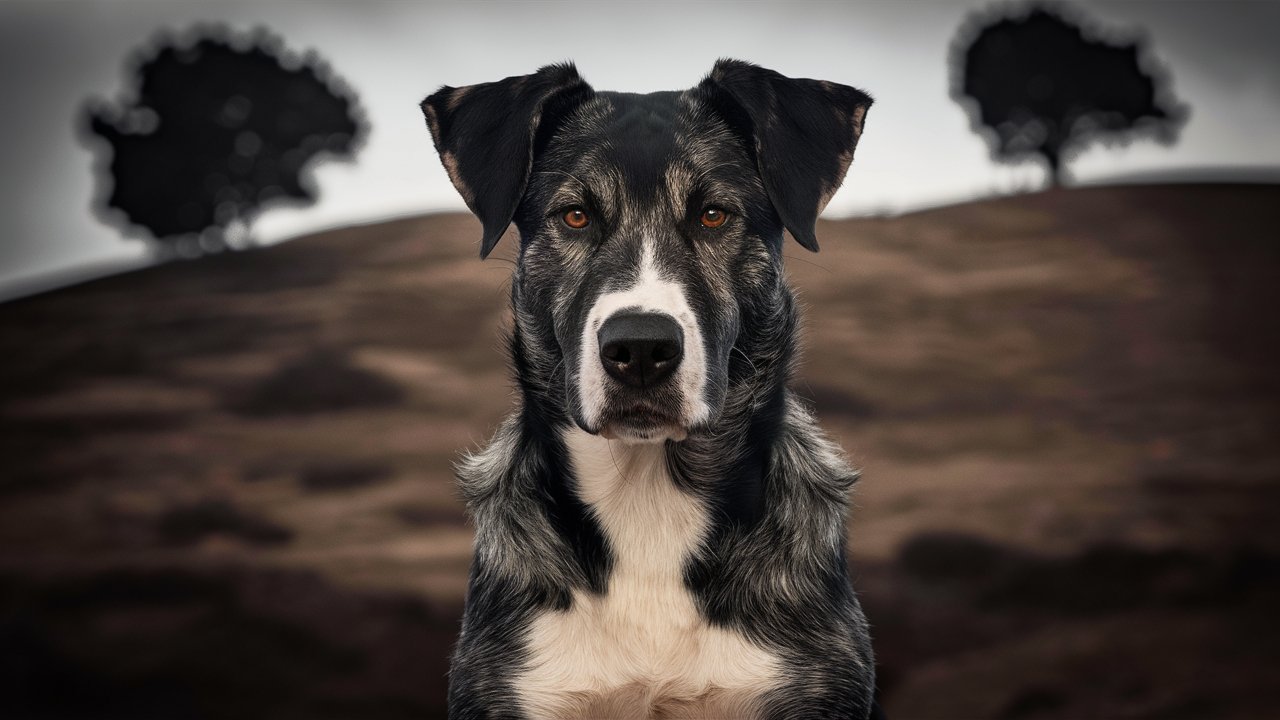
Canaan Dogs are generally a healthy breed with a lifespan ranging from 12 to 15 years. However, like all dogs, they are susceptible to certain health issues that prospective owners should be aware of.
Common Health Issues
- Hip Dysplasia: This condition occurs when the hip joint doesn’t develop properly, leading to discomfort and reduced mobility. It can range from mild to severe and is influenced by genetics and environmental factors. Regular exercise and maintaining a healthy weight can help manage hip dysplasia.
- Progressive Retinal Atrophy (PRA): PRA is a degenerative eye disorder that eventually leads to blindness. It’s inherited and currently has no cure, but early diagnosis through veterinary screenings can help manage the condition and adjust living conditions to accommodate a blind dog.
- Hypothyroidism: Canaan Dogs can develop an underactive thyroid gland, which affects metabolism and overall health. Symptoms include weight gain, lethargy, and skin issues. Treatment usually involves medication to replace thyroid hormones, which can effectively manage the condition.
- Allergies: Some Canaan Dogs may be prone to allergies, including food allergies or environmental allergens. Symptoms can range from itching and skin irritation to gastrointestinal issues. Identifying and avoiding allergens, along with veterinary guidance, can help manage allergies effectively.
Diet and Nutrition
A balanced diet is crucial for the overall health and longevity of Canaan Dogs. Providing high-quality dog food that meets their nutritional needs is essential. Owners should consider factors like age, activity level, and any specific health concerns when choosing a diet. Avoiding overfeeding and maintaining a healthy weight can prevent obesity-related health issues.
Exercise and Mental Stimulation
Regular exercise is important for keeping Canaan Dogs physically fit and mentally stimulated. They enjoy activities that engage their natural instincts, such as tracking, agility, and obedience training. Mental stimulation through puzzle toys, interactive games, and learning new commands helps prevent boredom and destructive behaviors.
Routine Veterinary Care
Regular veterinary check-ups are crucial for monitoring the health of Canaan Dogs and detecting any potential issues early on. Vaccinations, parasite prevention, dental care, and routine blood tests are part of maintaining their overall well-being. Discussing preventive healthcare with a veterinarian ensures that Canaan Dogs receive appropriate vaccinations and screenings based on their lifestyle and health history.
Personal Anecdote: My Canaan Dog, Milo, developed mild hip dysplasia as he grew older. With guidance from our veterinarian, we implemented a joint-friendly exercise routine and provided him with supplements to support his joint health. These adjustments helped him maintain his mobility and quality of life well into his senior years.
Longevity and Quality of Life
With proper care and attention to their health needs, Canaan Dogs can live long and fulfilling lives. Providing a loving home environment, regular veterinary care, a balanced diet, and ample exercise are key factors in ensuring their well-being. Understanding the breed’s specific health considerations and proactively managing them can significantly enhance their longevity and quality of life.
6. Living with a Canaan Dog

Canaan Dogs can adapt to various living situations, but they thrive in environments where they have space to explore and play.
- Home Environment: While they can live in apartments if given enough exercise, they prefer homes with yards where they can roam. Secure fencing is a must, as their independent nature may lead them to wander.
- Compatibility with Children and Pets: Canaan Dogs can be good with children if raised with them, but they may be wary of unfamiliar children. Proper introductions and supervision are necessary. They can coexist with other pets, especially if raised together, but their prey drive may be triggered by small animals.
Personal Anecdote: Living with my Canaan Dog, Max, has been an adventure. Max loves our backyard, often patrolling the perimeter and ensuring everything is in order. He’s great with my kids, always gentle and patient, but it took some time and training to ensure he was comfortable with their friends visiting our home.
7. The Canaan Dog in Modern Society
1. Family Companions
In contemporary homes, Canaan Dogs have become cherished family members. Their loyalty and protective nature make them excellent watchdogs, always alert to potential threats while remaining gentle and affectionate with their families. They form strong bonds with their owners and are particularly good with children when properly socialized.
Personal Anecdote: My friend Sarah has a Canaan Dog named Leo. Leo is incredibly protective of Sarah’s two young children, always positioning himself between them and any strangers. Despite his watchful demeanor, Leo is a gentle giant with the kids, tolerating their playful antics with patience and even joining in their games.
2. Service and Therapy Dogs
The Canaan Dog’s intelligence and trainability make them suitable for various service roles. They can be trained to assist people with disabilities, providing crucial support in daily tasks. Additionally, their calm and empathetic nature makes them excellent therapy dogs, bringing comfort and companionship to those in need.
- Service Dogs: Canaan Dogs can be trained to help individuals with physical disabilities by performing tasks such as retrieving items, opening doors, and providing stability. Their alertness and responsiveness are key traits in this role.
- Therapy Dogs: In hospitals, nursing homes, and schools, Canaan Dogs provide emotional support and therapeutic benefits. Their presence can help reduce stress and anxiety, improve mood, and offer comfort during challenging times.
Personal Anecdote: I once met a Canaan Dog named Bella who worked as a therapy dog in a local hospital. Bella’s gentle demeanor and keen intuition allowed her to connect with patients, offering them solace and companionship. One patient, an elderly woman recovering from surgery, spoke of how Bella’s visits brightened her days and made her recovery process more bearable.
3. Search and Rescue
Canaan Dogs possess a keen sense of smell and exceptional agility, making them well-suited for search and rescue operations. Their natural ability to navigate difficult terrains and their relentless work ethic are invaluable in locating missing persons and aiding in disaster relief efforts.
- Training: Canaan Dogs undergo rigorous training to hone their tracking abilities and learn to work in various challenging environments. Their independent thinking and problem-solving skills are crucial in this line of work.
- Performance: In search and rescue missions, Canaan Dogs have proven to be reliable partners, often working alongside their handlers in treacherous conditions to locate and rescue individuals.
Personal Anecdote: At a local community event, I had the opportunity to witness a demonstration by a search and rescue team that included a Canaan Dog named Rex. Watching Rex in action was awe-inspiring; his focus and determination were evident as he swiftly navigated obstacles and followed scent trails with precision. His handler shared stories of Rex’s successful rescues, underscoring the breed’s capability and dedication in life-saving missions.
4. Dog Sports and Competitions
Canaan Dogs excel in various dog sports and competitions, showcasing their agility, obedience, and intelligence. These activities provide them with mental and physical stimulation, helping to keep them engaged and happy.
- Agility: Canaan Dogs are agile and quick, making them naturals in agility courses. They navigate tunnels, jumps, and weave poles with ease, demonstrating their athleticism and responsiveness to commands.
- Obedience: In obedience competitions, Canaan Dogs display their ability to follow commands precisely and perform complex routines. Their eagerness to please and quick learning make them strong contenders.
- Rally Obedience and Tracking: These activities also highlight the breed’s versatility and keen sense of smell. Rally obedience involves a course with signs indicating different commands, while tracking taps into their natural scent-tracking abilities.
Personal Anecdote: My own Canaan Dog, Luna, and I participate in agility competitions. Luna’s enthusiasm for the sport is infectious; she thrives on the challenge and excitement of each course. Our bond has grown stronger through our training sessions, and seeing her joy and skill in action is immensely rewarding.
5. Preservation of Cultural Heritage
Owning and breeding Canaan Dogs also serve as a way to preserve cultural heritage. The breed’s history is intertwined with the nomadic Bedouin people and the land of Israel. Maintaining the breed helps keep this connection to the past alive, honoring the traditions and lifestyles of those who originally relied on these dogs for protection and companionship.
- Breed Preservation Efforts: Organizations and breeders dedicated to the Canaan Dog work to maintain the breed’s purity and promote awareness of its historical significance. They participate in breed-specific events and collaborate with international clubs to ensure the breed’s future.
- Cultural Significance: The Canaan Dog represents a living link to the ancient past, a testament to the enduring bond between humans and dogs. Their continued presence in modern society is a tribute to their resilience and adaptability.
Personal Anecdote: Visiting Israel, I had the chance to meet a breeder who was deeply passionate about preserving the Canaan Dog’s heritage. Listening to her stories about the breed’s history and the efforts to maintain its lineage was enlightening. It was clear that for her, breeding Canaan Dogs was not just about the dogs themselves but also about honoring and preserving a vital piece of cultural history.
6. Advocacy and Awareness
Advocacy for the Canaan Dog involves promoting responsible breeding, raising awareness about the breed’s unique characteristics, and educating potential owners about the responsibilities of owning such a dog.
- Breed Clubs and Organizations: Various clubs and organizations around the world are dedicated to the Canaan Dog. They provide resources, support, and education for owners and breeders, helping to ensure the breed’s well-being.
- Community Outreach: Events, workshops, and seminars help spread awareness about the Canaan Dog. These initiatives educate the public on the breed’s needs, history, and the importance of responsible pet ownership.
Personal Anecdote: As an advocate for the Canaan Dog, I often participate in local pet fairs and community events to share information about the breed. One memorable event involved a presentation at a school where I introduced students to my Canaan Dog, Max. The kids were fascinated by his history and unique traits, and it was heartwarming to see their interest and enthusiasm.
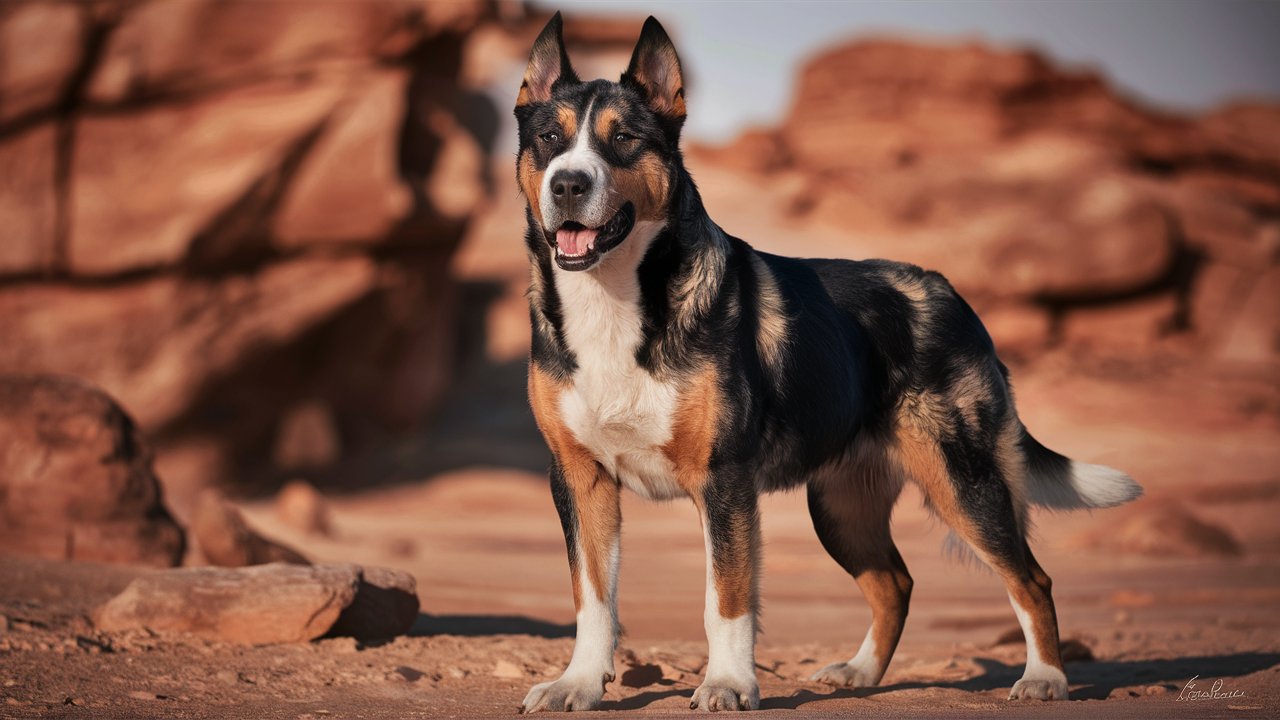
8. Conclusion
The Canaan Dog stands as a testament to resilience, intelligence, and unwavering loyalty—a breed deeply rooted in history yet remarkably adaptable to modern life. As we conclude our exploration of these remarkable dogs, it’s clear that their journey from the deserts of ancient Israel to homes around the world is marked by both challenges and triumphs.
Resilience and Adaptability: From their origins as desert dwellers, the Canaan Dog has evolved into a breed capable of thriving in diverse environments. Their ability to adapt, whether as faithful companions in suburban homes or as working dogs in various roles, underscores their versatility and enduring appeal.
Loyalty and Companionship: Owners of Canaan Dogs often speak of their unwavering loyalty and deep bonds with their families. These dogs form strong attachments and take their roles as protectors seriously, making them not just pets but integral members of the household.
Challenges and Rewards: Living with a Canaan Dog requires commitment and understanding. Their independent nature and intelligence demand consistent training and mental stimulation. However, the rewards of their companionship—whether it’s their playful antics, their protective instincts, or the joy they bring to daily life—are immeasurable.
Personal Reflection: As someone who has been captivated by the Canaan Dog’s history and character, I’ve come to appreciate their unique qualities and the lessons they teach about resilience and adaptability. Each Canaan Dog I’ve encountered has left a lasting impression, from their alert expressions to their spirited personalities.
Looking Ahead: The future of the Canaan Dog is bright, with dedicated breeders and enthusiasts ensuring their preservation and promotion worldwide. Whether in the show ring, on the agility course, or as cherished companions, these dogs continue to make their mark.
In conclusion, embracing a Canaan Dog means embracing a piece of history, a source of unwavering loyalty, and a companion ready to embark on life’s adventures with you. If you’re considering adding a Canaan Dog to your family, you’re not just choosing a pet—you’re welcoming a faithful friend and a living testament to the enduring bond between humans and dogs.
